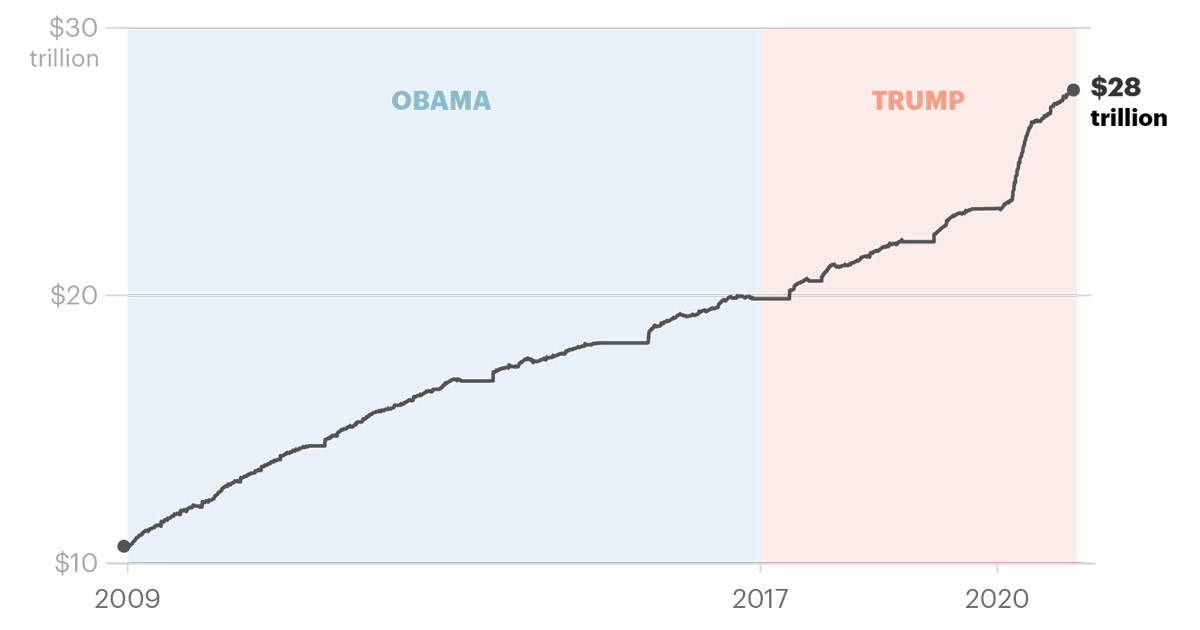- Joined
- May 6, 2013
- Messages
- 4,366
- Reaction score
- 2,426
- Location
- NW Virginia
- Gender
- Male
- Political Leaning
- Undisclosed
I'll give you several reasons why I think deficit spending is necessary.but most of the time I don't see a necessity [of deficit spending] aside from just increased spending without increasing taxes.
The US population increases has increased by an average of 293k per month over the last 40 years.
Population
Looking at the census...
The U.S. population in 2020 was 331,449,281.
The 1980 population of 226,545,805.
Here's the breakdown:
- Population increase: 104,903,476 people (68 million more working aged people)
- Percentage increase: 31.64%
Productivity:
Each worker, thanks to advances mostly in computers, but other tech as well, has made the average worker 128% more productive on a per worker basis when compared to 1980.
So in real terms, we'd take the number of workers and multiply by per-person productivity to get a fair comparison with the year 1980. Today there are 208 million working aged people vs 140 in 1980. So if we use 1980 as the year to compare to today we have 474 million peoples worth of productivity (208 million x the increase in per-person output or 2.28) when comparing today to 1980, so in real terms the economy has an output potential 70% greater today than 40 years ago.
Of course, not all people of working age are working, but that's true in both time periods and I don't want to over complicate this, even if the number in 1980 and 2020 were 5%-10% less, the result would stay largely the same as a percentage).
Do you think that an economy with more people and much greater output potential needs more dollars?
Global reserves
Today, the world has over $14 trillion dollars in in foreign reserves, 60% of those are US dollars. That means there is about $8.76 trillion dollars being held in foreign accounts (mostly central banks), that's $8.76 trillion dollars not circulating in the US economy.
Total foreign reserves globally in 1990 was less than $1 trillion (of which US portion of that was a fraction), thus, the net growth in global reserves has increased by about $8 trillion.
There are three of the biggest reasons that I think the US Government needs to net deficit spend.
To say nothing of how deficit spending is an opportunity to rebalance the share of dollars between the top 10% and the bottom 90% of income and wealth holders. Even with government entitlements and spending the top 10 percent's share of wealth has accelerated significantly.
Your thoughts?


